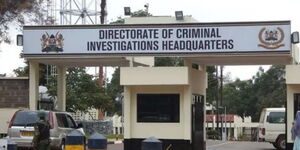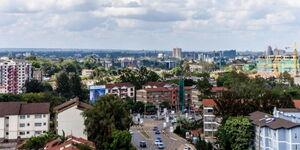As debate on the Computer Misuse and Cybercrimes (Amendment) Act, 2024 rages on, Parliament has claimed that there are several fake inserts in the petition challenging the assenting of the Bill into law.
National Assembly Clerk Samuel Njoroge maintained that a rise in fake clauses and distortion of current Bills before Parliament have posed a serious risk to national stability and public trust in Parliament.
Speaking on Friday, November 7 during the KEPSA–National Assembly Roundtable in Mombasa, Njoroge highlighted the recently assented Cybercrime law, noting that it has heavily distorted in the public domain.
“There are six entities in court on matters that were never part of the Bill,” he noted.
While he did not mention the exact entities that are said to be falsely part of the new laws, Njoroge said that the fake clauses have caused unnecessary alarm and confusion among citizens.
Njoroge noted that this was not an isolated case, revealing that shortly after President William Ruto assented to several laws, counterfeit versions with fabricated clauses were widely shared on social media.
“It was painful to see misinformation spread so fast, and we had no space to clarify the truth. Many people still believe those fake versions,” Njoroge said.
The High Court has since suspended certain provisions of the cybercrime law, particularly those on cyber harassment, following petitions citing concerns over ambiguity and free speech violations.
On Thursday, High Court judge Justice Lawrence Mugambi suspended the implementation of Sections 27(1)(b) and 6 of the Act until petitions filed against the amendment are fully heard and determined.
Mugambi also froze Section 6(1)(j)(a) of the law, which permits the government to block websites or applications that allegedly promote unlawful activities, inappropriate obscene content involving minors and atrocities.
According to Justice Mugambi, social media will be protected until the six petitions challenging the new cybercrime legislation have been fully considered.
The original orders were issued after petitions by Gospel artist Reuben Kigame and Kirinyaga Woman Representative Jane Njeri claimed the amendments signed by President Ruto on October 15, 2025, were threatening digital rights and freedom of expression.
Njoroge disclosed further Bills that had been distorted, including a Bill sponsored by MP Simon King’ara on the protection of public land, which he claimed was falsely altered to claim that it introduced taxes on freehold land.
Another Bill by Suna West MP Peter Masara, intended to provide psychosocial support to police officers, was distorted to suggest pay cuts for officers.
Njoroge urged Kenyans to remain vigilant against misinformation, warning that unchecked falsehoods could destabilise the nation.
“This country belongs to all of us. If it collapses because of fake news, we will all be affected,” he cautioned.












